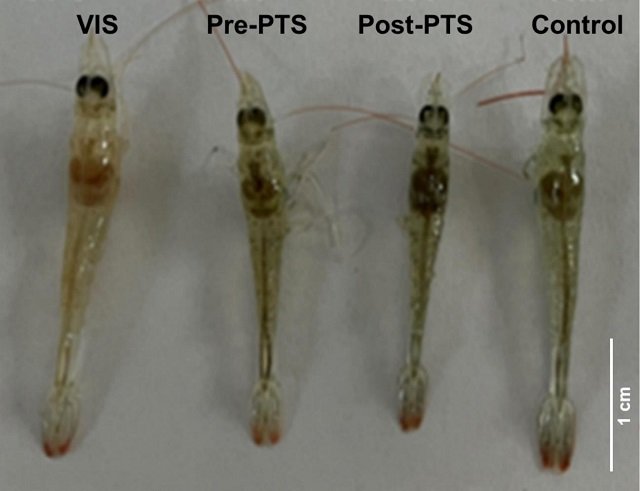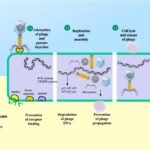
The health of fish in aquaculture facilities is of paramount importance to the salmon industry, and concerns about bacterial diversity in animal microbiota due to excessive antibiotic use have arisen. However, a promising alternative to combat infections without disrupting microbiota is bacteriophage therapy, or simply, phage therapy.
Scientists from the Norwegian University of Science and Technology conducted research into how phage therapy can protect Atlantic salmon yolk sac fry (Salmo salar) from lethal infections without negatively affecting the water microbiota.
Microbiota: A Natural Defense
Fish benefit from microbial colonization, which provides nutrients for growth, supports normal development, and protects against infections. However, these beneficial functions of microbiota are threatened by a decrease in microbial diversity resulting from antibiotic use.
In the study, researchers challenged Atlantic salmon yolk sac fry colonized with microbiota and germ-free fry with the bacterium Flavobacterium columnare.
What they found was enlightening: the mere presence of microbiota protected the fish against lethal infection. This suggests that microbiota plays a crucial role in protecting salmon from infections.
Phages against Infection
Bacteriophage therapy has emerged as one of the primary alternatives to antibiotics. Phages are a distinct group of viruses that infect bacterial cells. Due to their specificity, phages are therapeutic agents with the potential to combat bacterial diseases.
“While it is generally accepted that phage therapy can alleviate outbreaks of aquatic diseases, the effect of phage therapy on microbiota is poorly documented,” the scientists report.
In this regard, the team of scientists studied the effect of phage and oxytetracycline treatment on fish survival and the characteristics of the bacterial community in rearing water, using 16S rRNA gene amplicon sequencing.
Phage treatment increased the survival of fish challenged with F. columnare and reduced the relative amount of the pathogen in the water microbiota. In the absence of F. columnare, phage treatment did not affect the composition or a-diversity of the rearing water microbiota.
Stay Always Informed
Join our communities to instantly receive the most important news, reports, and analysis from the aquaculture industry.
In the presence of the phage’s host, phage treatment induced minor changes in the composition of the bacterial community, without affecting a-diversity. Surprisingly, oxytetracycline treatment had no observable effect on the water microbiota and did not reduce the relative abundance of F. columnare in the water.
Conclusion
In summary, this study demonstrates that phage treatment can prevent mortality in salmon without negatively affecting the water microbiota. This suggests that phages could be a suitable alternative to antibiotics in the aquaculture industry. Additionally, the study highlights the protective role of microbiota in Atlantic salmon yolk sac fry.
“We demonstrated that phage therapy protected Atlantic salmon yolk sac fry from F. columnare infection without altering the water microbiota. While our work was conducted in Atlantic salmon, we believe that our findings may also be useful for discussing the use of phage therapy in a context beyond aquaculture,” the scientists conclude.
The research sheds light on how we can maintain the health of farm animals without compromising bacterial diversity, offering hope for the health and sustainability of aquaculture. Phage therapy emerges as a promising solution in the fight against infections in the aquaculture industry without harming the delicate balance of microbiota.
Contact
Ingrid Bakke
Department of Biotechnology and Food Science
Norwegian University of Science and Technology
7491, Trondheim, Norway
Email: Ingrid.bakke@ntnu.no
Reference (open access)
Fiedler, A.W., Gundersen, M.S., Vo, T.P. et al. Phage therapy minimally affects the water microbiota in an Atlantic salmon (Salmo salar) rearing system while still preventing infection. Sci Rep 13, 19145 (2023). https://doi.org/10.1038/s41598-023-44987-7
Editor at the digital magazine AquaHoy. He holds a degree in Aquaculture Biology from the National University of Santa (UNS) and a Master’s degree in Science and Innovation Management from the Polytechnic University of Valencia, with postgraduate diplomas in Business Innovation and Innovation Management. He possesses extensive experience in the aquaculture and fisheries sector, having led the Fisheries Innovation Unit of the National Program for Innovation in Fisheries and Aquaculture (PNIPA). He has served as a senior consultant in technology watch, an innovation project formulator and advisor, and a lecturer at UNS. He is a member of the Peruvian College of Biologists and was recognized by the World Aquaculture Society (WAS) in 2016 for his contribution to aquaculture.







